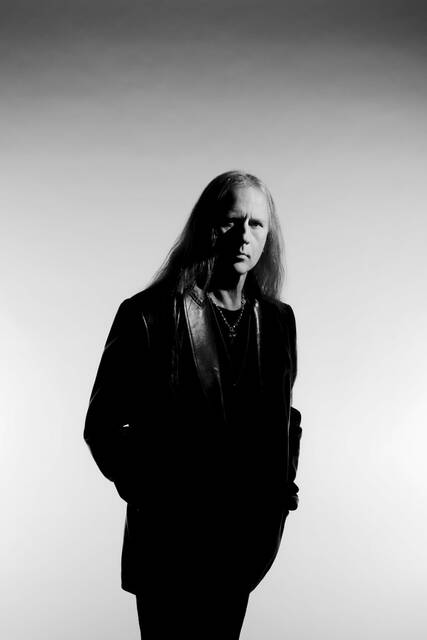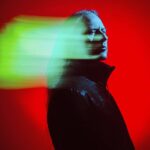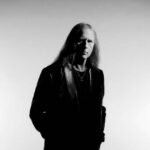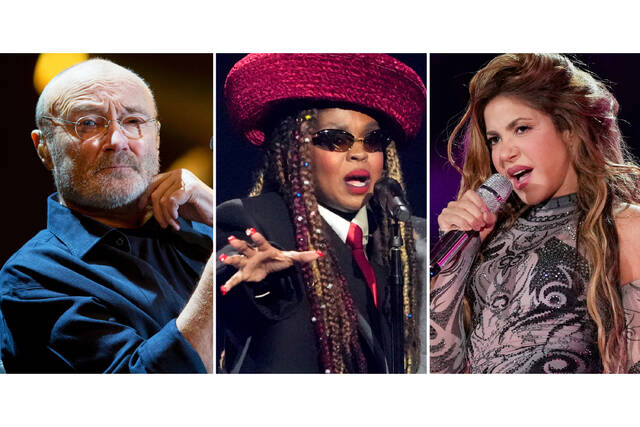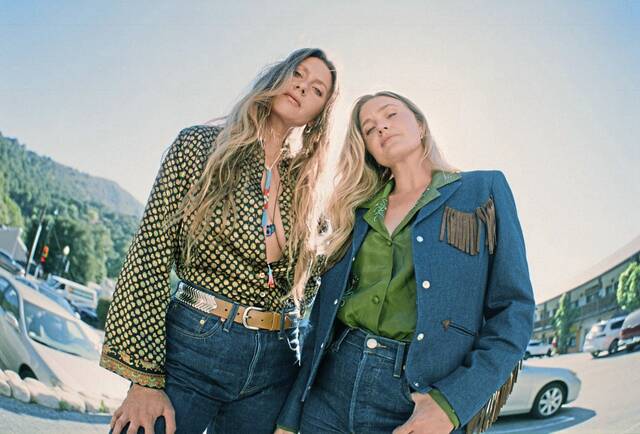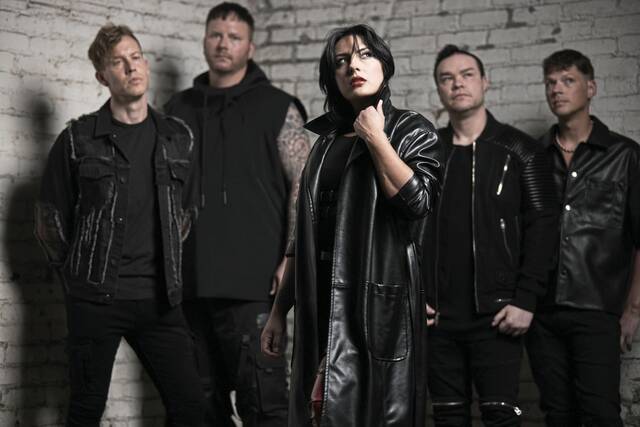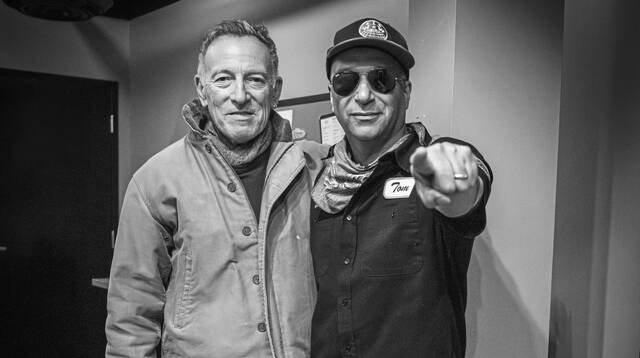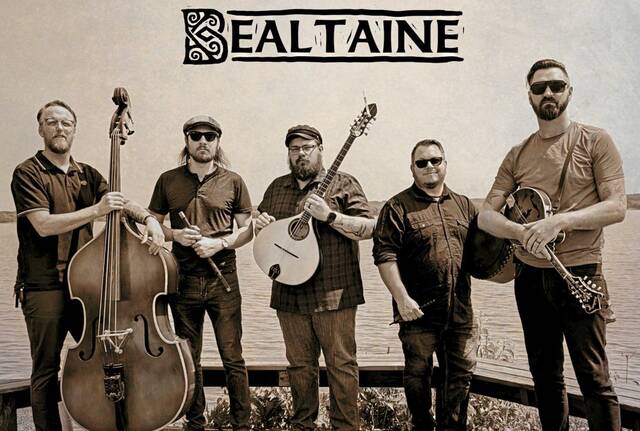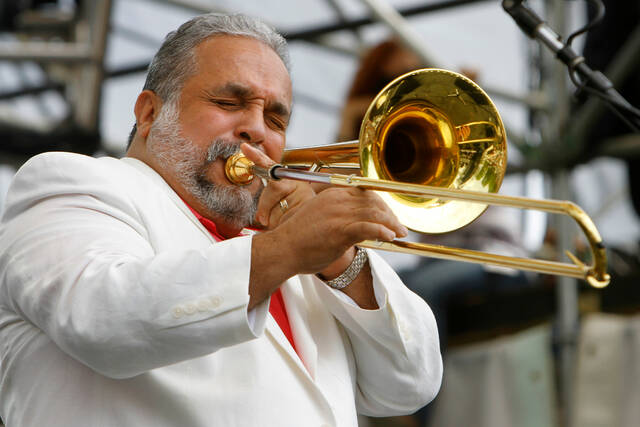Guitarist Jerry Cantrell may be heavily associated with the Seattle music scene from his work with the seminal grunge band Alice in Chains.
But Cantrell, now 59, spent around a year in the Pittsburgh region — Finleyville in Washington County, to be precise — while in eighth grade during the 1979-80 school year.
“My dad was stationed so I was living there and going to school there the year the Steelers won their last of the four Super Bowls and the Pirates won the World Series. So it was a good year to be south of Pittsburgh,” Cantrell said with a laugh.
Cantrell had been a fan of the Steelers even before that, while his dad favored the Cowboys.
“I was already a fan and then I got to live there,” he said. “So it was pretty great.”
Cantrell will be back in the area for a show on his I Want Blood tour, hitting the Roxian Theatre in McKees Rocks on Sept. 6.
His latest solo album, “I Want Blood,” came out last October on the heels of 2021’s “Brighten,” which had been his first solo work since 2002’s “Degradation Trip” volumes. The latest album features notable guest appearances from Guns ‘N Roses’ Duff McKagan, Metallica’s Robert Trujillo, Faith No More’s Mike Bordin and more.
Besides his solo work, Cantrell has kept busy with Alice in Chains, including an appearance at the Back to the Beginning concert, which paid tribute to Ozzy Osbourne and Black Sabbath.
In a call earlier this month from Los Angeles, Cantrell discussed earning respect on a thrash tour, the response to “I Want Blood,” the Back to the Beginning concert and more:
In the early years of Alice In Chains, it looks like you had some pretty huge tour stops here in Pittsburgh. I saw there was 1990 with Iggy Pop, ‘91 with the Clash of the Titans and Van Halen and Lollapalooza in ‘93 so what stands out about those like early big tours for you?
It’s a working class town, and those are our people. The rock crowds in Pennsylvania are always strong, very loud, boisterous, enthusiastic. Yeah, we had some great shows through there and looking forward to another one.
I hope Pittsburgh wasn’t one where people were throwing rocks at you on Clash of the Titans.
I don’t know if people were throwing rocks. We might have got a couple of rocks. It was like pretty much anything else like cups, coins, parts of chairs. (laughs) I think we got turf. They were ripping up turf, the sod, and on Lollapalooza too. It was funny. We were lucky enough to go over for the Sabbath show over there in Birmingham. Just seeing Tom Araya and Kerry (King) and Scott Ian and everybody. I got to see Dave Mustaine while I was over there on tour as well; we did a festival together. I always feel really connected to all of those guys.
That was a really formative tour for us. It was a triumphant tour because at the beginning of it, like you say, most of the fans were like, who the (expletive) are these guys? And why the (expletive) are they on this bill? (laughs) Then about halfway through it, “Man in the Box” hit heavy rotation on radio and MTV and overnight things kind of shifted. “Oh, hey, I guess they’re not that bad.” (laughs) The items stopped being thrown. That’s when we knew that we were elevated to being part of the league instead of just the rookies. Rookie hazing was over.
You’ll be here on the I Want Blood tour, so now that that album’s been out for about a year now, have your thoughts changed on it at all? Would you have done anything differently with it?
I don’t think so. I don’t think I could have made a better record. When you’re working on a record, just by the fact of it being released, that’s the final sign-off for me. If I’m releasing it or the group I’m in is releasing it, in the case of Alice, that’s as good as we can do. It’s something we’re proud of, and we wouldn’t put something out if we didn’t feel strongly about it. So I felt that way about it, and it’s nice to see that your gut was right. Not only right for yourself, but right for a good chunk of your audience as well.
People are really digging it. We were in South America a day or two after it was released, and it kind of blew me away. With the way that we’re so interconnected, everything goes everywhere all at once, but that was a good thing, because I was playing a good chunk of the new record, and the crowd was singing all the lyrics, so they already knew it. It was amazing, and that’s cool. You’re hoping that you’re moving forward. I like the challenge of like, can I do this again? (laughs)
I’ve also had the benefit and the luck of being a part of some really (expletive) important songs and records, I think. And so you hope that you’re adding to that, and with “I Want Blood,” I don’t think that I could have done much better, and the more that we play these songs live, the more life they take on of their own, and that’s what you want. You want it to, at some point, not be just yours. You want other people to claim it as their own, too. You want to hear people yelling for “Vilified” and you want to hear people requesting “Off the Rails” and “Afterglow” and “I Want Blood,” and that’s been the case, and that’s satisfying.
Did this one feel like more of a “metal” album to you than “Brighten”?
Yeah, well, they’re two different records. They were intended to be. (laughs) You don’t want to repeat yourself and we took some early chances in our career with making a pretty heavy record and then an acoustic EP, and then another really heavy record and another kind of acoustic EP. So we kind of set a template early on that we like music of all kinds. We didn’t want to be pigeonholed as only a one-thing band, so that’s not really what interested us. We took those chances and people got used to it there, so there are fans of the more pared-down, atmospheric acoustic-type side and then there’s fans of the heavy stuff, and then there’s fans of both.
So “Brighten” was a little bit more of a straight-up, roots Americana kind of rock ‘n’ roll record. This one definitely was a little bit more toward the hard-hitting, aggressive side of me, and those are both valid sides and everything in between. I never sit down intending to make a particular kind of record, but you just kind of pay attention to which way it seems to naturally want to go. OK, it’s wanting to go this way, so “Brighten” wanted to go that way so I followed it. When I started getting into making demos for “I Want Blood,” it didn’t take very long to go, OK, it wants to go this way, so you just follow it and kind of tend it and bring it into being.
When you’re writing, how do you know what’s a solo song vs. what’s an Alice in Chains song? Are you purposely writing with those different sides in mind?
I go about it kind of the same way, whether I’m working within Alice or if I’m making a record on my own. The process that I just kind of went through with you, I feel motivated and I get the spark like, OK, it’s time to work, and ideas start to flow and you start building songs and then you just follow it to its inevitable conclusion. I intended to make “Brighten” and I also had some time and intended to do another record following that. So whatever I’m writing at that point, it’s going to go into the project that I’m focused on. I get asked it all the time. It’s just kind of a frustrating question because I don’t really know how to answer it. I mean, Alice can obviously do any song. So if we were working on stuff when I was writing this, on, and two, if the guys liked it, (laughs) which is not always the case, then of course it could, but it’s not. So rather than focusing on what it’s not, I prefer to focus on what it is.
When it comes to your solo shows, do you feel like there are certain Alice songs that you have to play?
Look, all artists play the music that they’ve written in their career, and I’ve had a pretty long career in Alice and some of those songs it’s really fun to play in a different venue and in a different group. It’s always (expletive) really fun to take it back home and play it with the guys, too. You’re hoping that you’ve got a couple of songs per record that are really kind of standouts, and I’ve been lucky to have a good couple handfuls of those songs, and those are the songs that people want to hear and I also enjoy playing. Monkey with a setlist every once in a while and change it up, a couple of songs here and there. But you’re also trying to do a good full show, a good powerful show, so there’s certain songs that you probably should play for people because they’re expecting you to play them.
Are there old songs that maybe aren’t in the mix, that you wouldn’t want to play again?
There’s a couple that are kind of difficult, you know what I mean? You’re looking at two hours tops show per night. So that kind of limits it to like 18 or 19 songs. (laughs) You got to pick your poison. Do you want to try to get weird and obscure and (tick) everybody off because you don’t play any hits? In order to satisfy a small fraction of people which might think that that’s cool? Or do you want to do a show that you think most people would dig? And then you can always plug and play two or three songs and surprise people with a couple of deep cuts. That’s kind of generally what I try to do. There’s room for both.
Related
• Code Orange's Reba Meyers on going solo with 'Clouded World EP,' tour: 'It's very rewarding'• Sister Hazel guitarist Drew Copeland on Pittsburgh-born song, the band's longevity and more
• 2025 Pittsburgh area concert calendar
How did it feel to get tabbed to play in the Back to the Beginning show for Ozzy and Black Sabbath?
You couldn’t (expletive) recreate the vibe of what it was like to be there. It’s amazing that it came together in the first place. I was so happy, we were just (expletive) honored to be invited to be a part of it. To stand on the side of the stage and watch all these great bands and then watch Ozzy and Black Sabbath play their final show. I was so happy to be a part of it, just as a participant and a fan. And then most importantly, what it meant to him and what it meant to the band, to Black Sabbath, and to see him get that love and see him have the opportunity to do his final show the way he wanted to do it. You couldn’t make that (stuff) up. I guess one of Ozzy’s famous quotes about himself: “You couldn’t invent me. I wouldn’t believe it.’ So pretty (expletive) epic, man.
Was that was a rare time where a lot of big-name musicians could fanboy out a little bit?
Yeah, totally. On the side of the stage, while we were watching Ozzy and Black Sabbath, I’m standing next to James Hetfield and Mike Bordin and Tom Morello and Rex Brown and everybody, we’re all of us together. We’re just all like, we’re (expletive) fans. We’re there because of them. They’re one of the bands that, across the board, touched all of us and probably inspired us to try to find our own path in making some heavy rock ‘n’ roll. So it was like the world’s biggest rock ‘n’ roll high school reunion is what it was. (laughs) It was just a great thing. It was a healing thing. Of course, it was a little sad as well because you knew it wasn’t going to happen again. But overall, it was just a beautiful, beautiful (expletive) thing to be a part of and to witness.
You got to play “Fairies Wear Boots,” so what stands out about that song to you?
That’s a hard (expletive) song, man. (laughs) It goes to a lot of different places and a lot of their (music) does. They were such an interesting band, there’s like this weird jazz/blues fusion through (expletive) distortion. I remember I was having conversations with everybody in all the bands that day. I was talking to (Extreme’s) Nuno (Bettencourt), who was (expletive) worried about the “Bark at the Moon” solo, and Kirk (Hammett) coming straight off his (expletive) helicopter and he’s like “Dude, I’m (expletive) nervous, man.’ He’s like, “I don’t get nervous. I’m (expletive) nervous, I don’t want to (mess) up the Sabbath song.”
I’m like, I think we’re all feeling the same. You’re not nervous about your own (music), you just want to make sure you represent their (music) as well as you can, but (Metallica’s) version of “Hole in the Sky” was (expletive) ripping. But we were all extra focused on (expletive) trying to pull off some of that (stuff), and it’s just epic music. It’s really tough because it’s got a certain feel, the way that those four guys played together, and it’s indelible to them. I think that’s really the final lesson is that’s what those guys did as themselves: they sounded uniquely like themselves and so the biggest lesson is trying to find a group of guys and form an identity and form a sound that no other four or five or however many band members you have, you create a thing together that’s bigger than the individual components, so that’s really what being in a band is, and you’re trying to find that unique identifiable sound of what you all sound like, your version of rock ‘n’ roll which can’t be really replicated.



